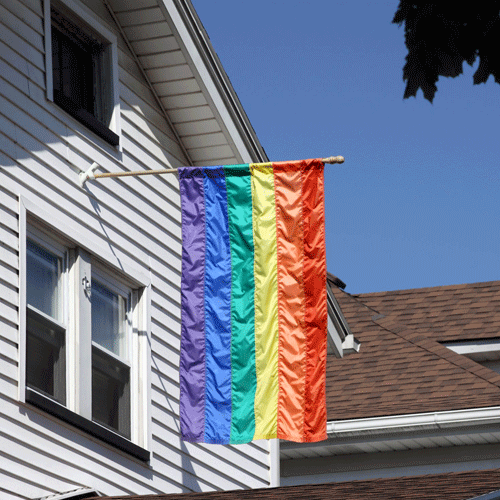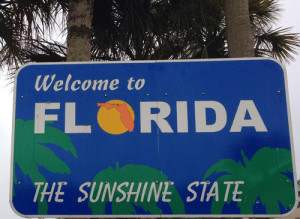Menu
Hot-Topics
February 5, 2026 | SCOTUS Decision in Bowe v. United States Is First of the 2026 Term
Tag: Supreme Court Decisions

Cantwell v. Connecticut: The Free Exercise of Religion
In Cantwell v. Connecticut, 310 U.S. 296 (1940), the U.S. Supreme Court first applied the First Amendment's Free Exercise Clause to the states. A unanimous Court specifically held that arresting Jehovah’s Witnesses who were proselytizing door-to...

U.S. v. Carolene Products Company: The Importance of Footnotes
In United States v. Carolene Products Company, 304 U.S. 144 (1938), the U.S. Supreme Court upheld the validity of an economic regulation passed by Congress pursuant to the Commerce Clause. However, the case is more famous for “Footnote Four,” ...

Same-Sex Marriage Affirmed in Obergefell v. Hodges
By a vote of 5-4 in Obergefell v. Hodges, the United States Supreme Court held that the Fourteenth Amendment requires a State to license a marriage between two people of the same sex and to recognize a marriage between two people of the same sex when...

Separation of Powers Decides Jerusalem Passport Dispute
In Zivotofsky v. Kerry, the U.S. Supreme Court held that the power to recognize foreign states and governments is exclusive to the President. The 6-3 decision, which rested almost exclusively on the Constitution’s separation of powers, highlights t...

Maryland’s Tax Scheme Violates the Commerce Clause in Comptroller v. Wynn
In a 5-4 decision, the U.S. Supreme Court recently held that the state of Maryland’s tax scheme is unconstitutional. Since it fails to recognize taxes paid in other states, the Court found that the state’s personal income tax system violates the...

United States v. Guest: Conspiracies and the Fourteenth Amendment
In United States v. Guest, 383 U.S. 745 (1966), the U.S. Supreme Court held that violations of the Fourteenth Amendment can serve as grounds for criminal charges under a federal conspiracy law that makes it a crime to "injure, oppress, threaten, or i...

Florida’s Campaign Finance Laws for Judicial Candidates Does Not Violate First Amendment
There are acceptable limits to free speech in some campaign finance laws for the Roberts Court, at least when it comes to judges elected by popular vote. In a case regarding campaign finance laws, Williams-Yulee v. The Florida Bar, the majority of t...

Fourth Amendment and Technology: Can They Co-Exist?
In a brief per curium opinion, the U.S. Supreme Court recently held that lifetime monitoring of a convicted sex-offender could run afoul of the constitutional right to be free from unreasonable searches and seizures. The decision in Torrey Dale Grad...

America’s First Privacy Case: Meyer v. State of Nebraska
Privacy rights are not expressly addressed under the U.S. Constitution. However, the Supreme Court has nonetheless found that they protected under the Bill of Rights. Most notably, the Court has held that the notion of “liberty” under the Fourtee...
Previous Articles
SCOTUS Rules State Can’t Immunize Parties from Federal Civil Liability
by DONALD SCARINCI on January 29, 2026
In John Doe v. Dynamic Physical Therapy, LLC, 607 U.S. ____ (2025) the U.S. Supreme Court held that...
Supreme Court to Address Racial Discrimination in Jury Selection
by DONALD SCARINCI onWhile the U.S. Supreme Court has concluded oral arguments for the year, it continues to add cases t...
Supreme Court Halts Deployment of National Guard to Chicago
by DONALD SCARINCI on
In Trump v. Illinois, 607 U.S. ____ (2025), the U.S. Supreme Court refused to stay a district court...
The Amendments
-
Amendment1
- Establishment ClauseFree Exercise Clause
- Freedom of Speech
- Freedoms of Press
- Freedom of Assembly, and Petitition
-
Amendment2
- The Right to Bear Arms
-
Amendment4
- Unreasonable Searches and Seizures
-
Amendment5
- Due Process
- Eminent Domain
- Rights of Criminal Defendants
Preamble to the Bill of Rights
Congress of the United States begun and held at the City of New-York, on Wednesday the fourth of March, one thousand seven hundred and eighty nine.
THE Conventions of a number of the States, having at the time of their adopting the Constitution, expressed a desire, in order to prevent misconstruction or abuse of its powers, that further declaratory and restrictive clauses should be added: And as extending the ground of public confidence in the Government, will best ensure the beneficent ends of its institution.
Awards





